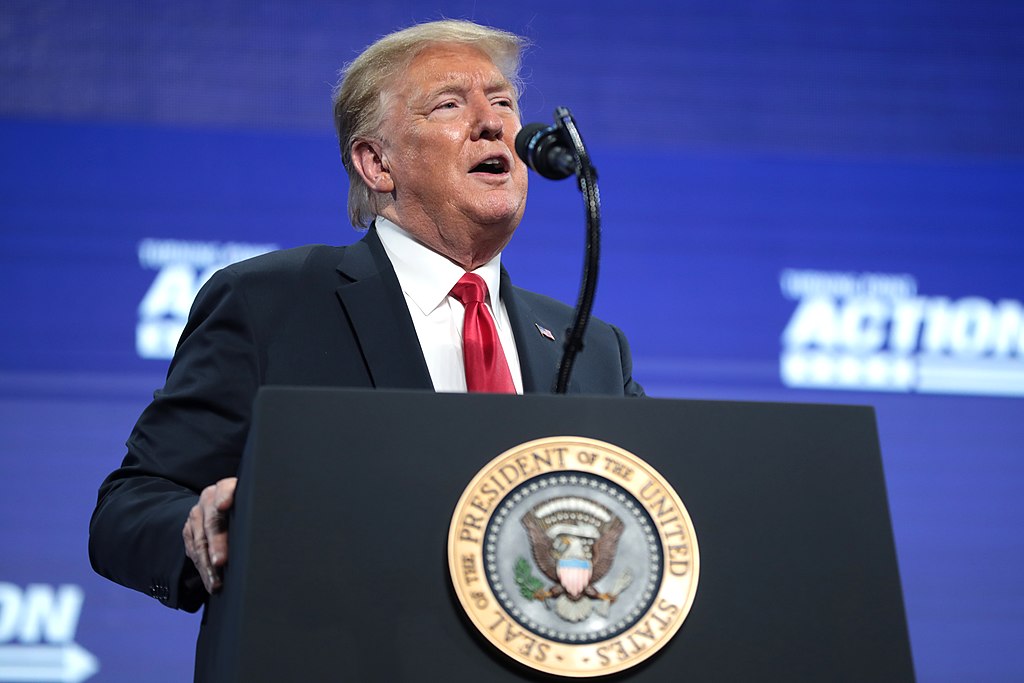Republicans are preparing to reintroduce a contentious piece of legislation that could transform voter registration procedures across the United States. Known as the Securing America’s Voting Eligibility (SAVE) Act, the bill seeks to mandate proof of citizenship when registering to vote. Additionally, it would impose penalties on election officials who fail to verify voter eligibility, a move critics argue could suppress voter turnout and intimidate election workers.
This push comes as Republicans regain control of Congress and intensify efforts to address what they claim are vulnerabilities in the electoral system. Advocates for the SAVE Act argue that stricter voter ID laws are necessary to protect election integrity. However, opponents warn that such measures could disproportionately impact marginalized communities, making it harder for eligible voters to participate in democracy.
Potential Impact on Election Officials and Voters
If enacted, the SAVE Act would require individuals to present government-issued proof of citizenship, such as a passport or birth certificate, when registering to vote. Failure to comply could result in the rejection of voter applications. Furthermore, election officials who do not thoroughly verify eligibility could face fines or legal action under the proposed law.
Critics say these measures could overburden election workers and deter qualified individuals from seeking such roles. The SAVE Act’s punitive approach, they argue, risks creating an environment of fear and mistrust within the electoral system.
Civil rights organizations are especially concerned about the bill’s potential to disenfranchise voters. They note that obtaining proof of citizenship can be costly and time-consuming, particularly for low-income individuals, seniors, and people of color. Opponents argue that these barriers could result in significant voter suppression, undermining decades of progress in expanding access to the ballot box.
Social Media Buzz: Voters React to SAVE Act Push
The introduction of the SAVE Act has ignited heated debates online, with Twitter users voicing strong opinions on the proposed legislation:
- @DemocracyNow: “The SAVE Act is just a thinly veiled attempt to suppress votes. Proof of citizenship is unnecessary!”
- @PatriotDefender23: “About time Congress got serious about voter fraud. If you’re a citizen, you have nothing to fear.”
- @JusticeForAll2024: “This bill will target marginalized communities and make voting an even bigger challenge for them.”
- @ElectionIntegrityNow: “Penalizing election officials? How will that improve our system? Republicans need to rethink this one.”
- @LibertyAndJustice: “We’ve seen enough election chaos. The SAVE Act could finally bring some much-needed accountability.”
- @EqualVoices2025: “Restricting voter access isn’t the answer. We need policies that protect democracy, not destroy it.”
A Battle Over Election Integrity or Suppression?
Republicans are framing the SAVE Act as a crucial step toward bolstering election integrity in the wake of unsubstantiated claims of widespread voter fraud in 2020. Democrats, however, see the legislation as a direct attack on voting rights, designed to shrink the electorate and strengthen Republican control.
As the debate over the SAVE Act unfolds, it’s clear that the legislation will be a flashpoint in the broader battle over the future of American democracy. With voting rights advocates preparing legal challenges, the fight over the SAVE Act could extend well beyond the halls of Congress.



 Federal Judge Restores Funding for Gateway Rail Tunnel Project
Federal Judge Restores Funding for Gateway Rail Tunnel Project  NATO to Discuss Strengthening Greenland Security Amid Arctic Tensions
NATO to Discuss Strengthening Greenland Security Amid Arctic Tensions  Newly Released DOJ Epstein Files Expose High-Profile Connections Across Politics and Business
Newly Released DOJ Epstein Files Expose High-Profile Connections Across Politics and Business  New York Legalizes Medical Aid in Dying for Terminally Ill Patients
New York Legalizes Medical Aid in Dying for Terminally Ill Patients  Trump Rejects Putin’s New START Extension Offer, Raising Fears of a New Nuclear Arms Race
Trump Rejects Putin’s New START Extension Offer, Raising Fears of a New Nuclear Arms Race  Missouri Judge Dismisses Lawsuit Challenging Starbucks’ Diversity and Inclusion Policies
Missouri Judge Dismisses Lawsuit Challenging Starbucks’ Diversity and Inclusion Policies  Nighttime Shelling Causes Serious Damage in Russia’s Belgorod Region Near Ukraine Border
Nighttime Shelling Causes Serious Damage in Russia’s Belgorod Region Near Ukraine Border  Pentagon Ends Military Education Programs With Harvard University
Pentagon Ends Military Education Programs With Harvard University  Trump Lifts 25% Tariff on Indian Goods in Strategic U.S.–India Trade and Energy Deal
Trump Lifts 25% Tariff on Indian Goods in Strategic U.S.–India Trade and Energy Deal  Ohio Man Indicted for Alleged Threat Against Vice President JD Vance, Faces Additional Federal Charges
Ohio Man Indicted for Alleged Threat Against Vice President JD Vance, Faces Additional Federal Charges  U.S. Sanctions on Russia Could Expand as Ukraine Peace Talks Continue, Says Treasury Secretary Bessent
U.S. Sanctions on Russia Could Expand as Ukraine Peace Talks Continue, Says Treasury Secretary Bessent  Trump Signs “America First Arms Transfer Strategy” to Prioritize U.S. Weapons Sales
Trump Signs “America First Arms Transfer Strategy” to Prioritize U.S. Weapons Sales  U.S.-India Trade Framework Signals Major Shift in Tariffs, Energy, and Supply Chains
U.S.-India Trade Framework Signals Major Shift in Tariffs, Energy, and Supply Chains  TrumpRx Website Launches to Offer Discounted Prescription Drugs for Cash-Paying Americans
TrumpRx Website Launches to Offer Discounted Prescription Drugs for Cash-Paying Americans  South Korea Assures U.S. on Trade Deal Commitments Amid Tariff Concerns
South Korea Assures U.S. on Trade Deal Commitments Amid Tariff Concerns  Trump Says “Very Good Talks” Underway on Russia-Ukraine War as Peace Efforts Continue
Trump Says “Very Good Talks” Underway on Russia-Ukraine War as Peace Efforts Continue  Trump Endorses Japan’s Sanae Takaichi Ahead of Crucial Election Amid Market and China Tensions
Trump Endorses Japan’s Sanae Takaichi Ahead of Crucial Election Amid Market and China Tensions 





























